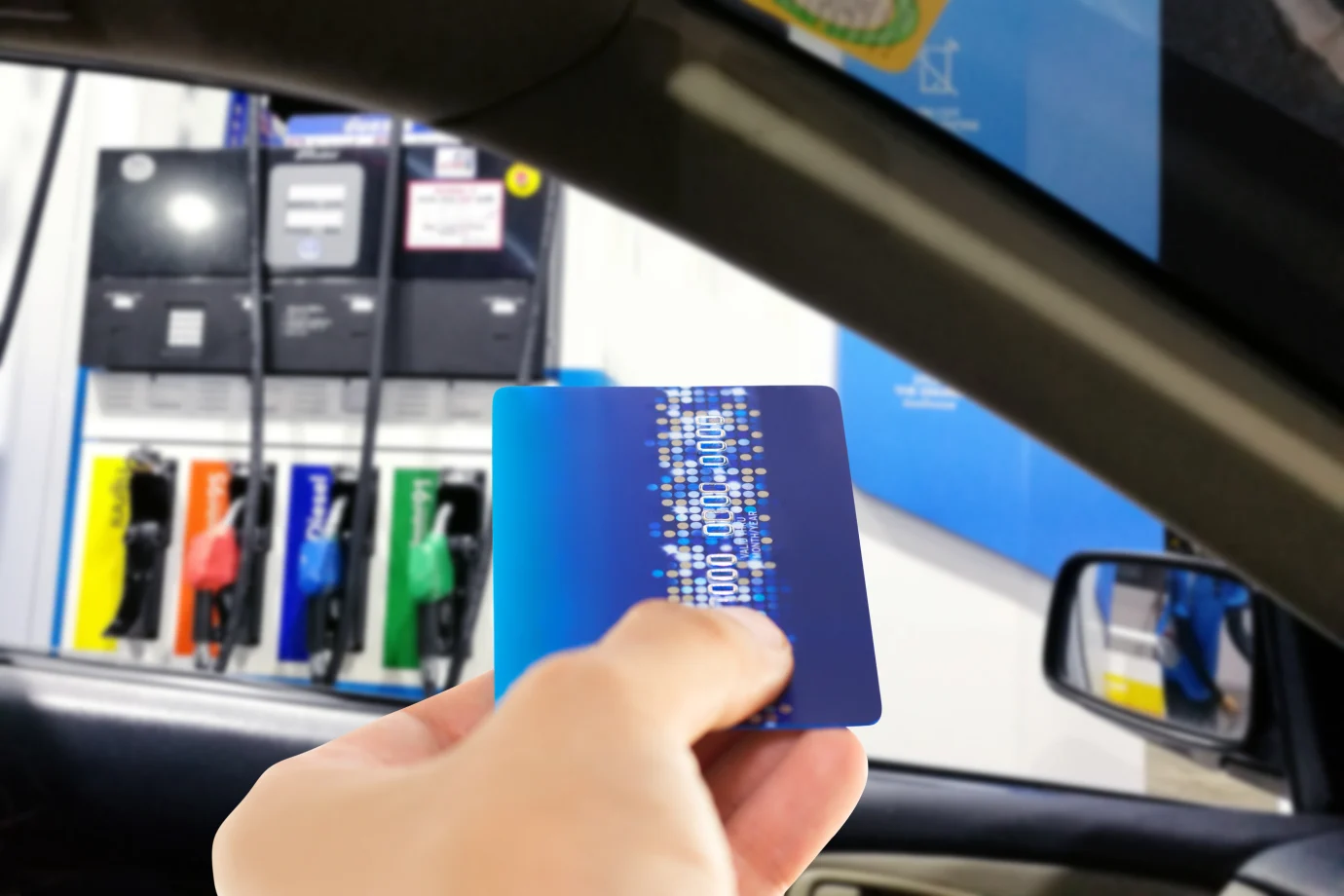Understanding Fleet Fuel Cards
Fleet fuel cards are payment cards specifically designed for use in fleet vehicles, allowing drivers to purchase fuel at participating gas stations. Unlike personal credit cards, these cards are often customized to meet the needs of fleet managers. They can be set with specific fuel types, purchasing limits, and even restrictions on the kinds of purchases that can be made, such as excluding unauthorized items like snacks or accessories.
These cards provide a controlled and centralized method for fueling fleet vehicles, making it easier for managers to monitor and track fuel consumption across the entire fleet.
How Fleet Fuel Cards Help Control Costs
One of the most notable benefits of fleet fuel cards is their ability to help manage fuel expenses. For many businesses, fuel is one of the highest operational costs. By using fleet fuel cards, fleet managers can set limits on fuel purchases, ensuring that drivers adhere to budgets and avoid unnecessary spending.
Moreover, these cards can provide access to discounts or special pricing arrangements at partnered fuel stations, which can lead to significant savings over time. Some fuel card programs even offer cash rebates or loyalty rewards based on the volume of fuel purchased, further reducing overall fuel costs for businesses.
In addition, fleet fuel cards eliminate the need for drivers to use personal credit cards or cash, simplifying transactions and reducing the chances of errors or discrepancies in accounting.
Streamlining Fuel Tracking and Reporting
Managing and monitoring fuel usage without a centralized system can be a daunting task. Fleet fuel cards simplify this process by automatically recording every fuel purchase made by a fleet vehicle. This data is collected in real time and can be accessed by fleet managers through a secure online portal or mobile app.
Fleet managers can generate detailed reports that show fuel consumption patterns, identify trends in vehicle efficiency, and track spending on fuel. These reports can be used to spot potential issues such as excessive idling, fuel theft, or misuse of fuel. With this data, fleet managers can take proactive steps to improve fuel efficiency and reduce waste.
Moreover, the ability to access up-to-date reports and analytics ensures that managers are never in the dark about their fleet’s fuel usage, enabling better decision-making and planning for future fuel needs.
Enhanced Security and Fraud Prevention
Fuel management also involves a certain level of security, as businesses must safeguard against fuel theft and misuse. Fleet fuel cards come with advanced security features that help reduce the risk of fraud.
For instance, many fleet fuel cards come with PIN numbers, requiring drivers to enter a code before fueling. This ensures that only authorized drivers can make purchases. Additionally, managers can set restrictions on the card, such as limiting fuel purchases to certain times of the day or only allowing fuel purchases for specific vehicles.
By monitoring purchases in real time, fleet managers can quickly identify any unusual transactions, which could be indicative of fraudulent activity. This level of control makes fleet fuel cards a highly secure option compared to traditional methods of fuel management, such as cash or personal credit cards.
Improving Driver Accountability
Another benefit of fleet fuel cards is that they help foster greater accountability among drivers. Since all fuel transactions are linked to a specific driver and vehicle, fleet managers can track exactly who is fueling each vehicle and when the fuel is being purchased. This transparency holds drivers responsible for their fuel consumption and encourages them to follow company guidelines when refueling.
Furthermore, fleet fuel cards can integrate with vehicle tracking systems to ensure that fuel is purchased only when necessary, further optimizing fuel usage. This integration provides a comprehensive picture of each driver’s fuel consumption and can highlight areas where improvements can be made, such as reducing idle time or improving driving habits.
Simplifying Accounting and Administrative Tasks
Without fleet fuel cards, tracking fuel purchases and managing invoices can be time-consuming and prone to errors. Fleet managers must manually review receipts and invoices, which can lead to administrative headaches and discrepancies in financial records. Fleet fuel cards simplify this by consolidating all fuel transactions into one system, eliminating the need for paper receipts.
The data provided by fleet fuel cards is easily exportable to accounting software, which streamlines the reconciliation process. This feature saves time and effort, allowing fleet managers to focus on other critical areas of the business.
